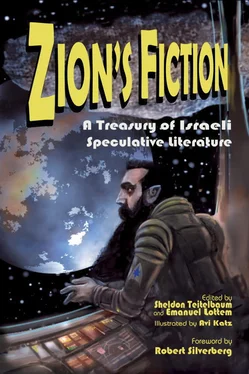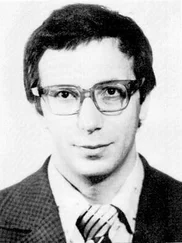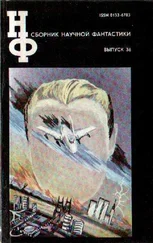Nuphar looked at us. “Is this for the record?”
“No.” Shir gave Nuphar a direct look, capturing her eyes. “This was recorded one hundred nine years, four months, ten days, and three hours ago.”
Nuphar looked like she was about to smile, but her smile vanished before it could reach her lips.
“This is my last recording as a Human Being,” I said, and Nuphar shifted her glance to me. “I don’t know how many times I’ve been reconstructed since.”
“You aren’t….” Nuphar’s eyes moved back to Shir. “Both of you…?” She bit her lip and shook her head. “No, of course you aren’t,” she whispered. “Your facial expressions, your gait, the way you understand each other much too well.” Now she directed her glance at me. “Are you telepathic? Do you have a way of broadcasting your thoughts to each other?”
I opened my mouth to reply, but Shir was faster: “No.” He loosened his clenched fist. “We can broadcast subvocally, but that’s not possible in here.”
Nuphar’s giggle was a brief one. “All frequencies are blocked in here; we don’t want to disturb our readers,” she said.
We smiled in reply. This seemed like the correct response. Nuphar’s smile froze and disappeared.
“But you do look human. Our scans identified you as human beings.” She closed her eyes. “Metallic skeleton and human skin?”
“Of course. All over our bodies.” I cleared my throat. “Otherwise we couldn’t have penetrated space-warp fields.”
“Of course not,” she repeated. Nuphar opened her eyes and looked at me. “Explain. Now.” She spread her fingers, and the keyboard rematerialized underneath her hands.
“It would be faster if we downloaded all our knowledge directly into…” began Shir, but he fell quiet as Nuphar turned her eyes to glare at him.
“Listen, kid.” She straightened her back. “I am a Librarian, a sixth-generation Librarian. I’ve been doing this since before you were born. Or created. Or assembled in a lab.”
“Grown in culture,” said Shir.
Nuphar raised her hand. “I couldn’t care less. I’ve been doing this many more years than you can imagine, so don’t you tell me how to prepare information for cataloging. We’ll download everything to the Library’s memory, of course. But first I want your story in general outline, so we can determine how to start processing the new information by subject headers.”
Now she looked at me. “Proceed, for future generations.”
I wanted to tell her that there won’t be any future generations, at least not on Earth, but Shir made a coughing noise, and I started telling her. About the invasion, about our inability to prevent the aliens’ taking over our planet, about lost technologies, about the relentless slaughter. About the moment we found out that what they really wanted was the Moon, and that they came to Earth just to rid it of vermin that might have interfered with their designs. About the deal that sealed the fate of all the members of the Silence Unit. I did leave out the sense of loss, the physical pain that came with each explosion, and the mental anguish when memories started flowing to newly activated backups. As well as the need to go on functioning even though everything we were meant to defend was gone.
Space-warp fields know how to seal themselves against anything mechanical and protect whatever they surround from external detonations. But they are sensitive to living matter and can recognize intelligence. Our combination of living tissue and intelligence can confuse them long enough for us to detonate the charges hidden inside us. The first invaders got the Moon, and Humankind remained on Earth to protect it from repeated invasions by other aliens who coveted exactly the same resources.
“But humankind….” Nuphar did not complete this sentence. She looked at Shir, at me, back at him. “But why? Whatever for? If there are no more human beings….”
“Because this is our destiny,” I replied. “We need to defend Earth.”
“The Prime Directive says, defend Earth for Humankind,” added Shir.
“But there is no humankind anymore,” said Nuphar again, tearfully. “No more human beings. Whatever for… why…?” She raised her hands from the keyboard and buried her face in them. Her head remained between her palms, her hair hid her face from us. Her shoulders were trembling.
Shir raised his eyebrows and tilted his head in her direction. I nodded. We are not capable of genuine compassion.
Nuphar sighed and raised her head. Her eyes were red. I made a note to add this item to the programming of my next backup. She sniffled, put her hands on the desk, and the keyboard reappeared beneath her hands. “Go on,” she said. “Dates. Locations. Major battles. How many invasions there were. Go on.”
We didn’t reply. Nuphar raised her voice. “Come on, robots, start talking.”
I cleared my throat.
“And don’t make this noise.” Nuphar straightened up. “You don’t have to breathe. You’re just a machine in a humanlike bag.”
“But we do breathe,’ said Shir. Despite his stiffened body, his voice was calm. “We have pain fibers. We feel and behave like Human Beings.”
“But you are not human beings,” Nuphar raised her voice again. “You’re just… just…” Her voice broke. She snuffled again. And again. But this time she didn’t lower her head or shift her glance. I looked at her.
“If we weren’t here, you’d have had nowhere to come back to,” I said.
“We’re not coming back,” Nuphar interrupted me. She wiped her nose. “There’s nowhere to come back to. We’ll seal the Library and move on, like always, and stop again in three hundred years to see if anything may have changed.”
“Nothing will have changed.” Shir sat very straight. “We’ll go on exploding, and when you come back you’ll find Earth still…”
“Full of machines,” Nuphar completed his sentence for him, and there was a sting in her voice. She glared at me. “Do you wish to make a protest also?”
I nodded.
“So come on. Proceed.” Nuphar spread her fingers over the keyboard.
“I just think,” I said quietly, “that this decision is not up to you.”
She did not answer. She just looked at me.
“There are more than two thousand Human Beings in here. As you told us yourself. You explained that you live in an organized anarchy. The decision whether to stop, move on, or come out must be made by all. Otherwise you’ll be trampling all over their rights.”
Nuphar continued to stare at me. I returned her gaze. My internal programming said that after ten seconds I must blink, and after thirty seconds I must lower my eyes. These intervals were set by Romi Potashnik when she created the very first backup.
After half a minute, I lowered my eyes. I waited. The room was silent.
Nuphar sighed. “Okay,” she said finally. I raised my head. She removed her fingers from the keyboard.
“I’m going to call a general meeting.” She bit her lower lip. “And you will not interfere.” She hesitated for a moment. “This is an order, hear?”
We nodded. She could not change our programming, but we knew we’d better not point out her mistake. Romi and Shir had programmed us, inputting the spectrum of permitted responses to Humans and specifying the chain of command. They had not known that Humankind was going to be wiped out in its entirety three hours after they completed their programming and that these reactions would become redundant, since there would not be any Humans to obey.
The meeting hall was crowded and noisy. I was unable to figure out the rules by which this was organized. Some shouted, some stood up on the desks and stomped their feet, some sat by and only made comments. Nuphar did all of the above, sometimes standing on a desk, sometimes stomping her feet, sometimes heckling speakers, sometimes doing all at the same time. Nobody ran the discussion or controlled it.
Читать дальше






